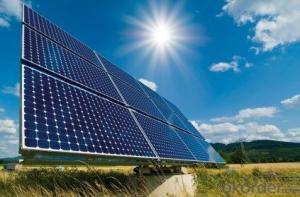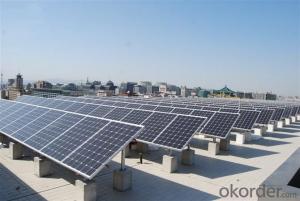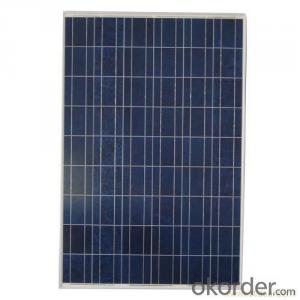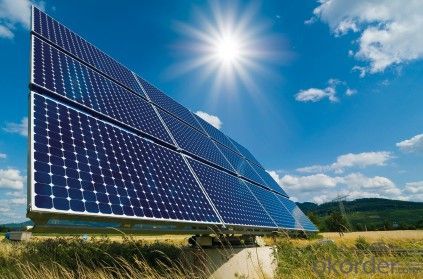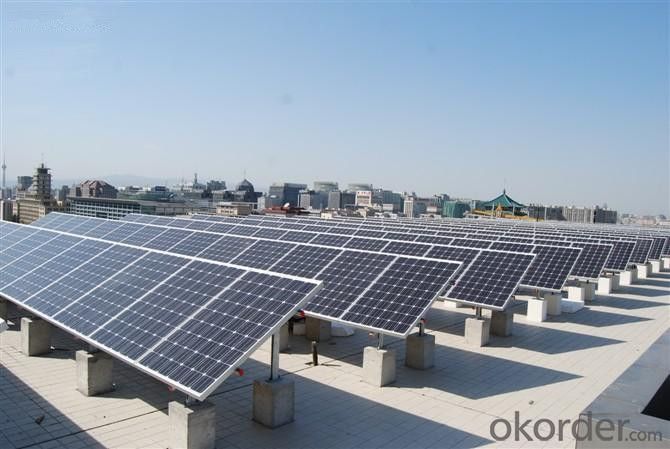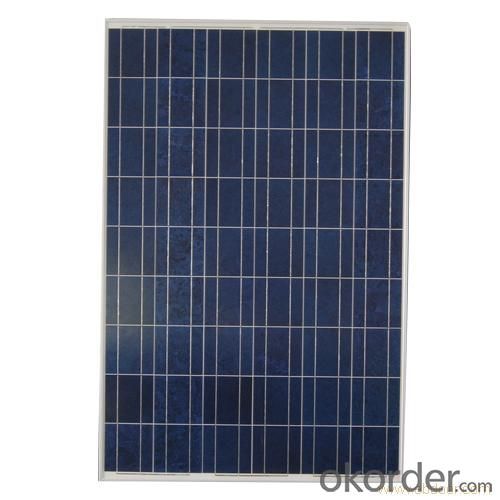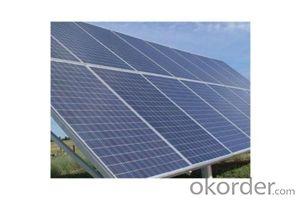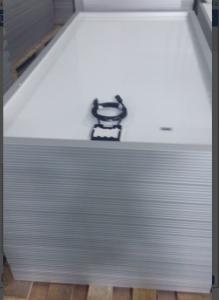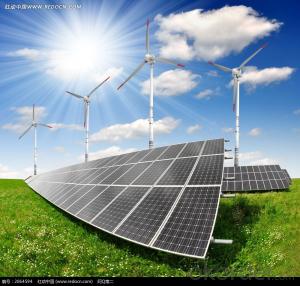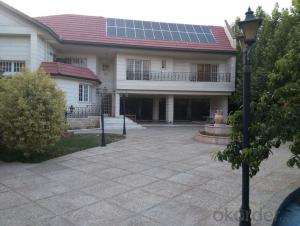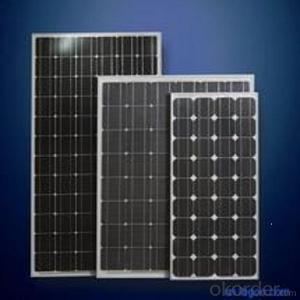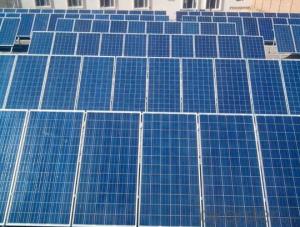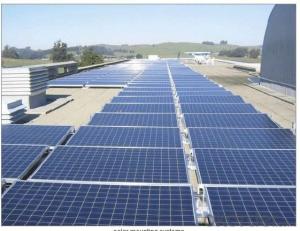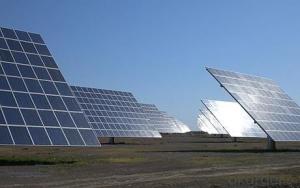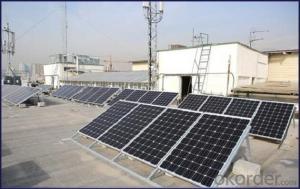Silicon Solar Panels for Sale, Solar Power, Solar Module
- Loading Port:
- China main port
- Payment Terms:
- TT OR LC
- Min Order Qty:
- 10000 watt
- Supply Capability:
- 100000000 watt/month
OKorder Service Pledge
OKorder Financial Service
You Might Also Like
Specification
Solar Monocrystalline 125mm Panel Series(45W-50W)
Product Description
Monocrystalline Silicon Solar Panel (45-50W)
• 10 years 90% output warranty
• 20 years 80% output warranty
• High conversion efficiency mono/poly-crystalline amorphous silicon solar cells
• Modules incorporate high performance bypass diodes to minimize the power drop caused by shading
• High transmittance, low-iron tempered glass
• High performance EVA encapsulate to prevent destroying and water.
• AI frame: without screw, corner connection. 8 holes on the frame can be installed easily
• Good performance of preventing from atrocious weather such as wind and hails
• Certifications: CE IEC TUV VDE UL, Class I
Details
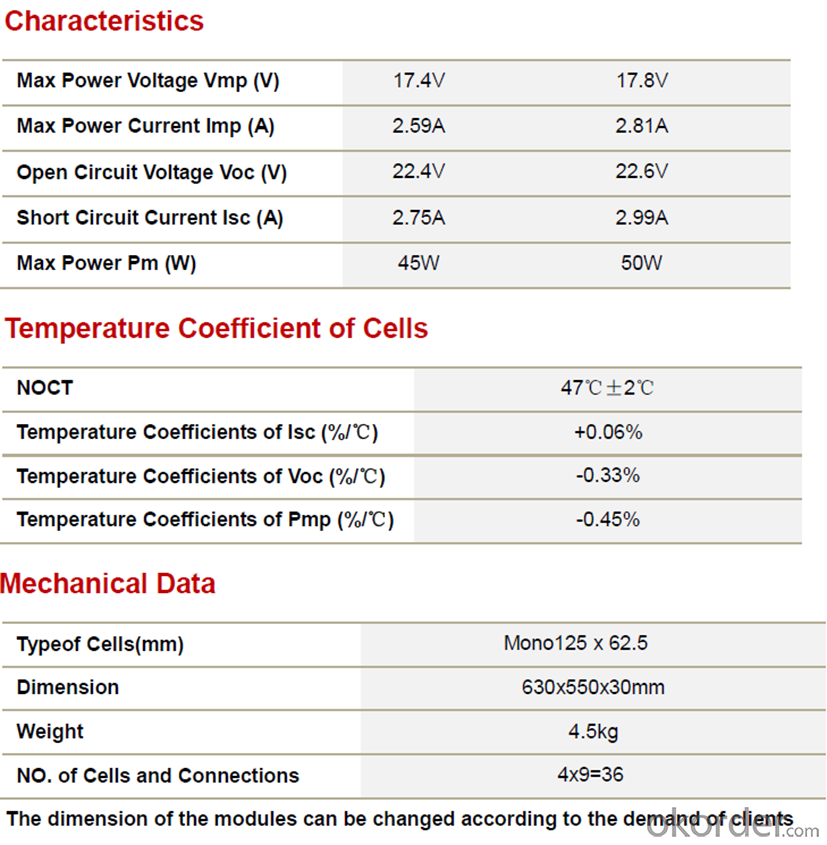
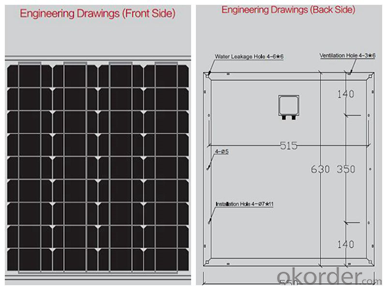
Certificate

Images
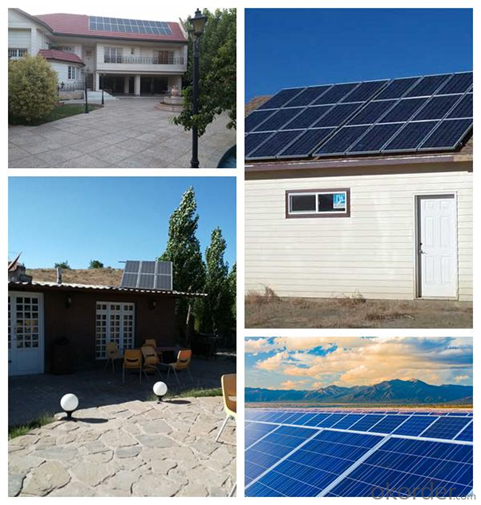
FAQ1
We have organized several common questions for our clients,may help you sincerely:
1.What price for each watt?
It depends on the quantity, delivery date and payment terms,
2.How do you pack your products?
We have rich experience on how to pack the panels to make sure the safety on shipment when it arrives at the destination.
- Q: Hello, I have been trying to go green, I Have purchase somesolar panel they are about 45watts I been putting it against my window and getting ok power out of it enough for my lights and a couple of low watts gadget (cellphone, 2v light, portable dvd) for couple of hours.But its seem to drain the 2v faster then I can charge Am I getting the most power out of my panel?Or should I place it on the roof? I'm in Texas and it gets hot and sunny the sun beam my room windows pretty good during 4pm-6pm.
- outside is going to be much better. You can't tell but glass is actully opaque to many ranges of 'light'. If you look at advertising for windows you may see claims to reduce sun fading of your carpet/ furniture. That is because the glass blocks UV. Solar panels get some of their energy from UV light. Also some windows are engineered to block IR to help insulate better when the house is cooler than the outside. Again, solar panels get some of their energy from light in the infrared range. And finally if you're charging batteries the 'off angle time' is still important. The amount of light absorbed is pretty closely related to the cosine of the angle that the sun is 'off' of the direct. so when the sun is 45 degrees off of perpendicular the panels still get cos45 =.707 or about 70% of the available energy. (In practice it's a little less than that because not as much energy gets to the panel to be absorbed as at midday). But anyway, you can figure two hours of morning or late afternoon sun will give you as much energy as hour of midday sun. So if the panel is inside, you miss out on that available energy.
- Q: Can solar panels be used in areas with high levels of dust or sandstorms?
- Yes, solar panels can be used in areas with high levels of dust or sandstorms. However, frequent and heavy exposure to dust or sand can reduce their efficiency over time. Regular cleaning and maintenance are necessary to ensure optimal performance in such areas. Additionally, advanced solar panel designs and coatings are being developed to mitigate the impact of dust and sand accumulation, making them more suitable for use in these challenging environments.
- Q: So, I've seen cheap solar panel kits for sale from Harbor Freight, and regardless of whether or not I were to buy a set from them or someone else, I was wondering what the process of implementing a small-scale solar system into your household electrical system would be.I've read articles that started out too in-depth or were speaking of systems on a much larger scale.Can it be as easy as buying the panels and inverter, and plugging it into a socket, or is there more to it?Some of the articles I was reading had mentioned having to contract with your electrical supplier, having to have an electrician tie it all in in some special/ necessary way, using a battery pack (would this be necessary for a tied-in system?), or using the system to only power single items, like a water heater, or plugging items into a connected battery-pack, all of which I'm not sure is necessary or needed for what my goals/ means are/ would be.
- You can't directly connect solar panel into household electrical system,you need to convert DC power to AC power more over it will cost more amount...
- Q: Can solar panels be installed on a telecommunications tower or antenna?
- Yes, solar panels can be installed on a telecommunications tower or antenna. In fact, many telecommunications companies are increasingly adopting this approach to power their equipment and reduce reliance on traditional energy sources. Solar panels can effectively generate electricity for the tower's operations, making it more sustainable and environmentally friendly.
- Q: Can solar panels be installed on rooftop gardens or green roofs?
- Yes, solar panels can be installed on rooftop gardens or green roofs. In fact, combining solar panels with green roofs can provide numerous benefits such as maximizing energy efficiency, reducing heat island effect, and enhancing biodiversity. It's a sustainable and innovative approach to utilize rooftop spaces for both renewable energy generation and environmental conservation.
- Q: Can solar panels be installed on a university campus or educational facility?
- Yes, solar panels can certainly be installed on a university campus or educational facility. In fact, many educational institutions have already embraced solar energy as a sustainable and cost-effective solution. Installing solar panels can help universities reduce their carbon footprint, save money on energy costs, and serve as an educational tool for students to learn about renewable energy.
- Q: So I want to power one of my car fans with some solar panels. I ordered quite a few and I want to power one of my fans under the hood. I've already disconnected the fan and pulled it out of the car to test it later.What all do I need besides the panels, fan, and wiring to make this work. This fan will not be tied to any other system. Currently, the fan is not operated by the car or any system of the car due to a modification made to the automobile allowing me to disconnect it from use months ago.Using the fan powered from the solar panels would help with the modification to increase air flow and speed into the area.Could someone please help me by telling me what else I need to make the fan operational from here?
- You may not like it, but the answer's still the same. A car fan will draw anything from a few to several hundred watts, depending on which fan you're talking about (A/C, ventilation, cooling). A solar array will take up roughly one square meter to generate 00 Watts with the sun shining straight down onto it, so you'll need to cover (more or less) the entire roof (or hood) with solar cells in order to power that fan (minimum). If you still want to go ahead: Solar panels, Fuse, cables. Preferrably one cut-out diode per panel (in addition to the hopefully present internal diodes in the panels) in order to prevent one panle dumping its load into the next instead of into the fan. Much better option: get a low power fan (e.g a slow running computer fan) and connect it to that panel of yours. These fans make do with about 0 Watts (at a much lower air throughput), so you'll actually have a chance of running it from the solar panel without coverig your car in panels.
- Q: Can solar panels be installed on a car?
- Yes, solar panels can be installed on a car. Solar panels can be mounted on the roof or hood of a car to harness sunlight and convert it into electricity, which can then be used to power various systems or charge the car's battery. This can help reduce the reliance on traditional fuel sources and provide an eco-friendly alternative for powering vehicles. However, it's important to note that the amount of electricity generated by solar panels on a car may be limited due to the small surface area available for installation.
- Q: How do solar panels convert sunlight into electricity?
- Solar panels convert sunlight into electricity through a process known as the photovoltaic effect. This involves the use of semiconducting materials, typically silicon, which absorb photons from sunlight. When the photons strike the solar panel, they transfer their energy to the electrons in the material, allowing them to break free from their atoms. This generates an electric current, which is then captured and harnessed by the solar panel to produce usable electricity.
- Q: I have a cabin in the woods and need more light. I do have enough sun but I was wondering how or where do I get a solar panel to lead to a power outlet? In a perfect world I would like to get a solar panel with a connecting wire to an outlet or something so I could power a small TV. I know its hard enough but can I get that pre-made? Or even lastly should I look at wind power consider I would like this to be under $500? Thank you for putting up with this bundle of questions.
- Wow. I couldn't tell you how much something like that would cost, but I would expect it to be pretty high. I don't think you are going to find a panel out there that is going to pump out enough juice to provide 0ac. It would involve a battery system and a DC to AC power inverter. You would have to let the system charge for a time and then you would be able to use if for a little while.
Send your message to us
Silicon Solar Panels for Sale, Solar Power, Solar Module
- Loading Port:
- China main port
- Payment Terms:
- TT OR LC
- Min Order Qty:
- 10000 watt
- Supply Capability:
- 100000000 watt/month
OKorder Service Pledge
OKorder Financial Service
Similar products
Hot products
Hot Searches
Related keywords
